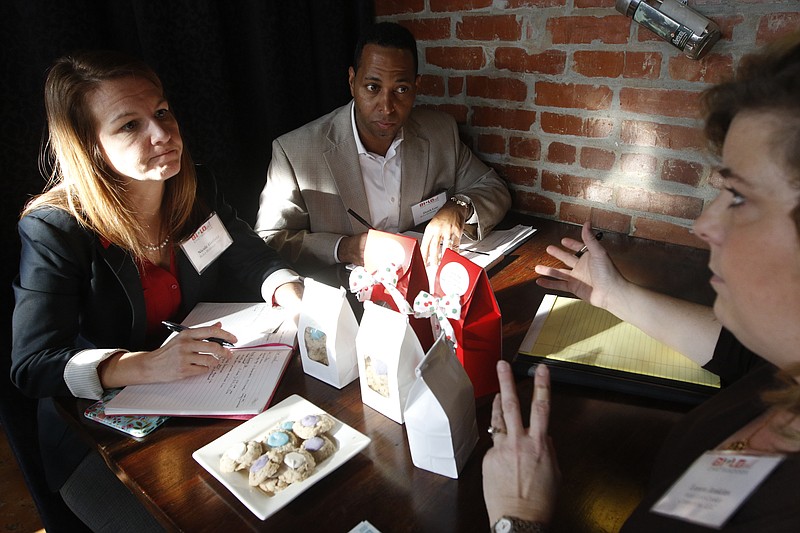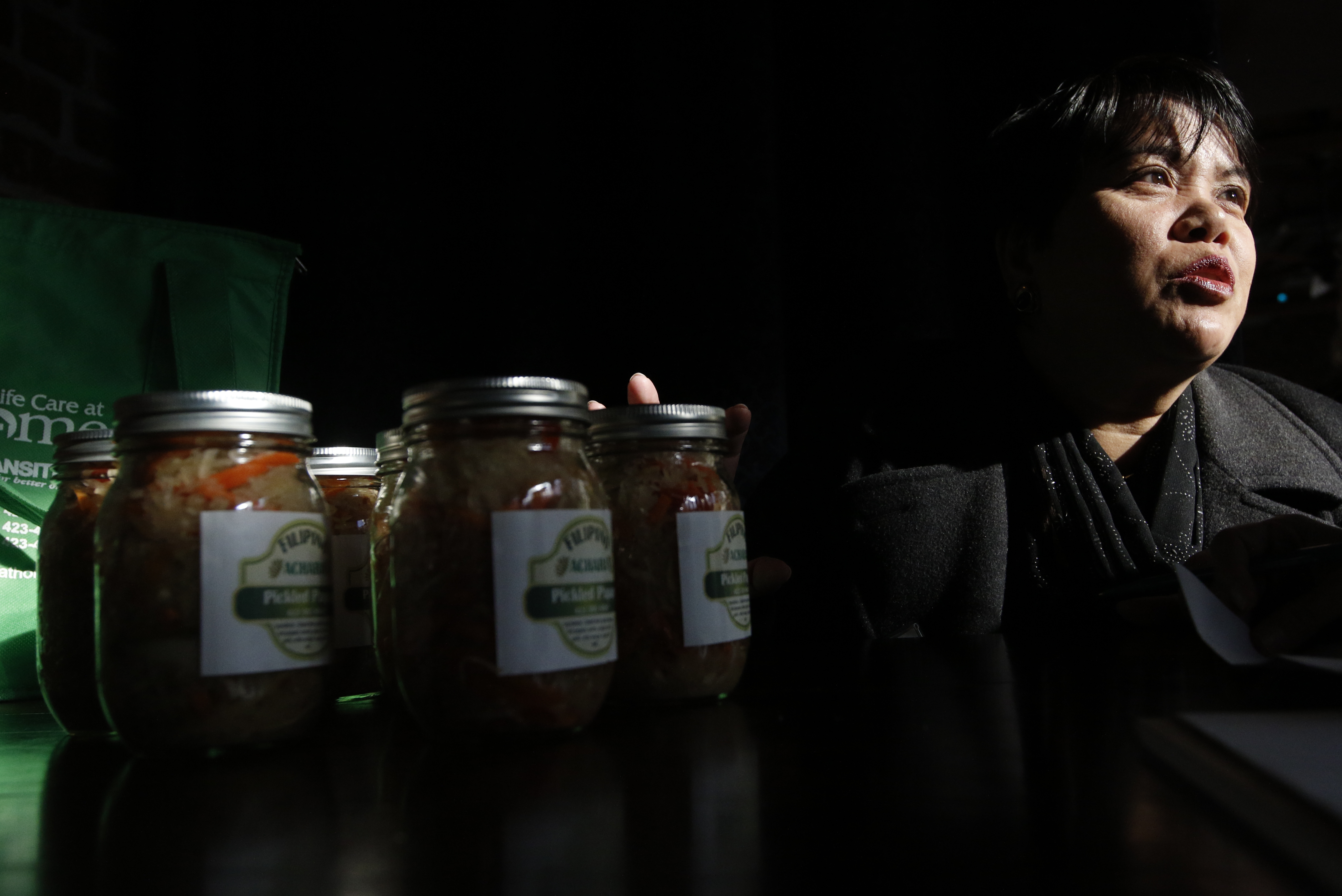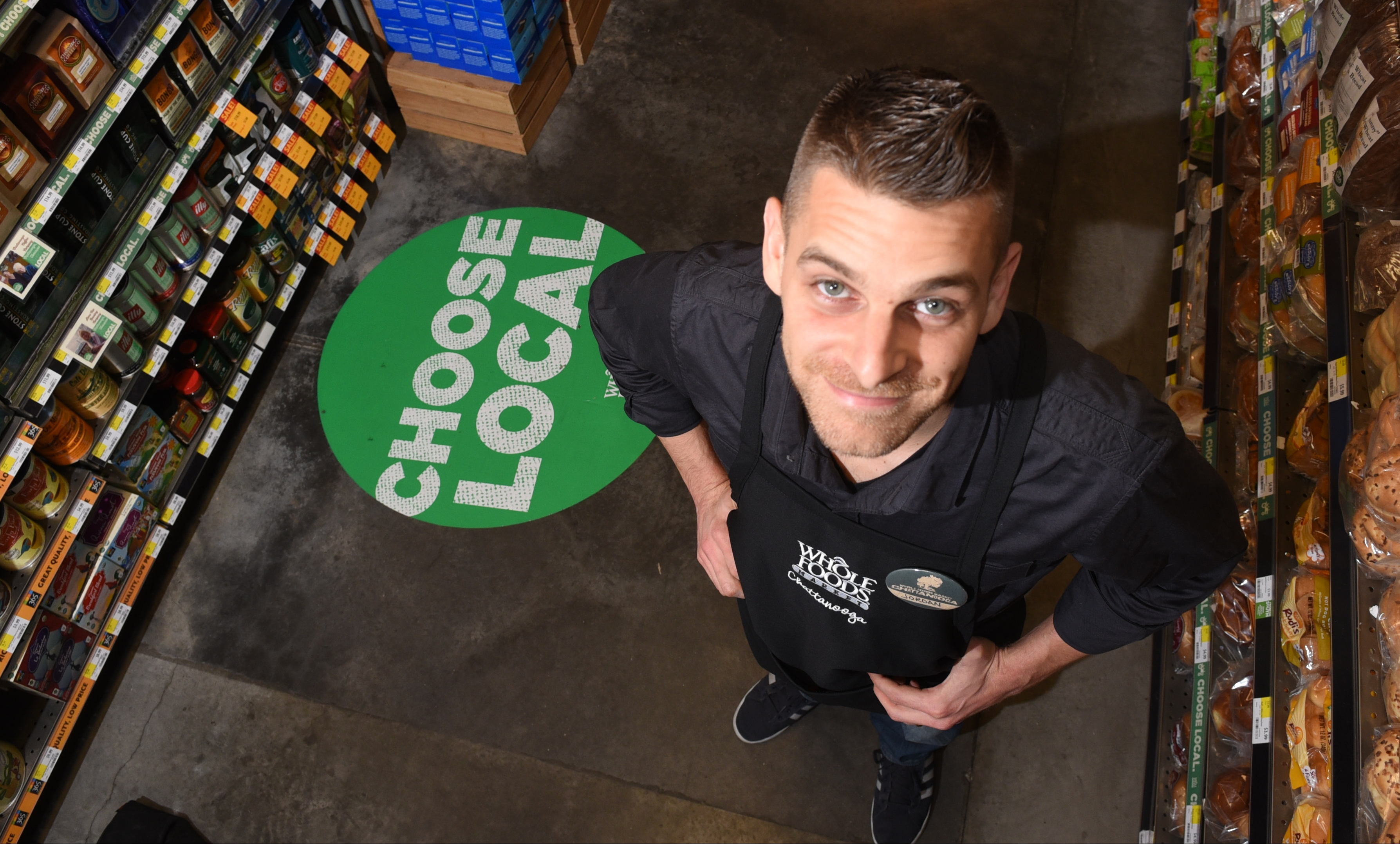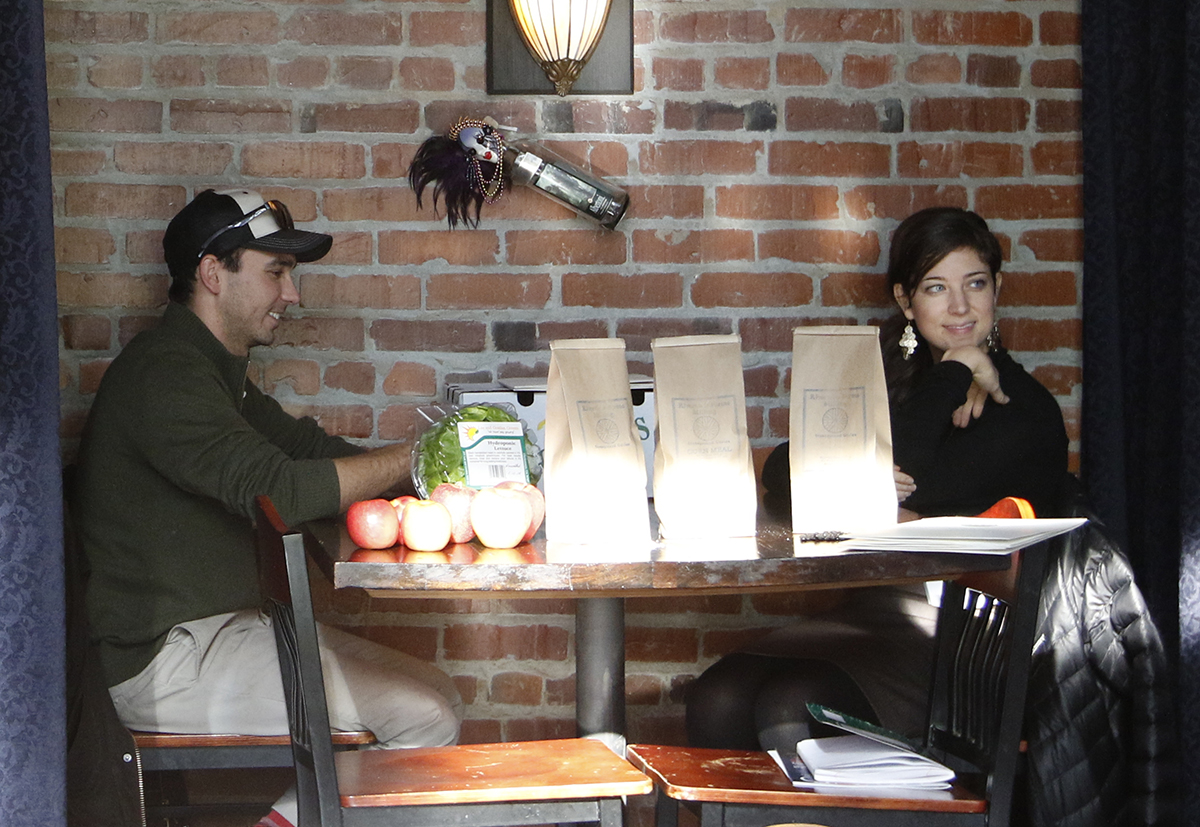Local sourcing
* Bi-Lo has about 20 local suppliers, including: Alchemy Spice Co., Barley Bones, LoAdebar, MayFly Coffee, Pure Sodaworks, Shuptrine's Twisted Products, Smokin' Joe's Food Products, Taste of Gluten Free, Tennessee Moonshine Cakes, Uncle Bud's Deep Fried Peanuts * Whole Foods Chattanooga has 80-100 local suppliers, including: Appalachian Bee, Big River Brewing Co., Blackberry Hills, LoAdebar, Niedlov's, Old Mill Kettle Corn, Ruby's Gold Granola, Sequatchie Cove Creamery, Tennessee Moonshine Cakes, Tranquil Acres Eggs, Velo Coffee RoastersSources: Bi-Lo, Whole Foods
The road from a neighborhood baker's kitchen or a family farmer's fields to the shelves of heavyweight corporate grocers can seem too complicated to navigate. But a growing groundswell for locally sourced foods and the public's tilt toward healthier living are helping bridge that intimidating span.
The Bi-Lo chain one year ago launched its "Bi-Local" program, which has put products from 19 Chattanooga-area businesses in its stores. Small companies -- sometimes just one-person operations -- that made sauces and sweets, among other things, pitched their products to Bi-Lo executives in a Hixson Bi-Lo store last spring.
This year, like last year, another crop did the same, though in mid-January and in Blue Orleans restaurant in Chattanooga's Southside.
"What's the shelf life?" and "How are you going to seal the package?" were two in a long list of questions executives had. Many of the dozen or so makers and suppliers were not far enough along to be in grocery carts: They didn't have UPC codes or labels; they didn't have proper packaging or hadn't nailed down distribution.
But that's okay, said Nicole Hatfield, Bi-Lo's senior manager of local business. "We love to help local vendors start that process." Then they can circle back to the grocer in the future with more refined plans.
Bi-Lo itself faced a learning curve in connecting with local suppliers. Before launching its campaign, if a farmer or food artisan came to a store looking for someone to field their product, employees often weren't sure where to send them.
"It wasn't in their everyday operating mechanism," Hatfield said. "Now the stores know where to turn."
Bi-Lo, based in Jacksonville, Fla., with 29 stores in the Chattanooga and North Georgia area, realized the importance of local continuity when it purchased about two dozen Piggly Wiggly stores in South Carolina. Those stores had carried many local products, and consumers came to expect them.
***
Whole Foods Chattanooga is more versed in engaging with local suppliers, something the Austin, Texas-based company has been doing for decades. In fact, the grocer sometimes works with potential suppliers to perfect their products for its standards. That was the case with My Three Son's, a North Carolina cheesemaker (which is in the Chattanooga location, but falls just outside the store's scope for "local").
The Chattanooga location has 80 to 100 local suppliers, some of which are in Nashville and near Atlanta. About 25 percent of produce in Whole Foods stores nationwide comes from local sources, and 10 to 30 percent of everything in stores comes from local sources. The Chattanooga location falls in line with that. The fact that in 2010 Whole Foods Chattanooga took over what had been an independently owned natural grocer, GreenLife, has helped.
It's not uncommon for food entrepreneurs to show up at the Chattanooga store with their products. Like many other Whole Foods, it has a local liaison who helps potential suppliers navigate the application process. Products and suppliers are approved at the regional level.
It's also not uncommon for the company to scout for local products, particularly if it's in a new market.
"We put out our feelers," said Jordan Jones, who manages the Chattanooga location. "Sometimes we see a product and think it's awesome and say, 'We have to have this.'"
For Jones, that has meant embedding himself in communities for a month or so when he helped open new locations. As a member of the specialty-products team, he spent his time at local restaurants and coffee shops. A produce team member, meanwhile, would spend time at farmers markets.
Whole Foods has a long list of quality standards, nearly all pointing to healthfulness as the first priority. It's on the company's website, aptly titled "Quality Standards" under a "Mission & Values" tab. A few of the most familiar standards to lay eaters: no hydrogenated fats or high-fructose corn syrup; no artificial colors, flavors, preservatives or sweeteners. No bleached flour. But there are dozens more complex ones: no bromated flour, no nitrates, no l-cysteine.
In autumn 2014 the company launched a national campaign called "Values Matter" stressing its quality standards, which are inextricably linked to sourcing.
In an extra pat to local suppliers, Whole Foods has bios with their photographs pinned near their products. It also created a way to give $1,000 to $100,000 loans to farmers and food artisans to help them grow. The Local Producer Loan Program offers interest rates of 5 percent. Since the program's inception in 2006 it has lent $14 million.
"It helps us get local products to the market," Jones said.
In the past five years, about 23 loans have gone to producers in Tennessee, Georgia, Alabama and North Carolina, Jones said, though he did not have related dollar figures. Right now a Chattanooga producer is close to securing a loan, he said.
***
Publix doesn't have a branded "buy-local" program. But the Lakeland, Fla.-based grocery, which has 1,090 stores across the Southeast including five in the Chattanooga area, generally tries to source local produce and considers quality though it doesn't omit products because they contain certain ingredients or are processed certain ways, said spokeswoman Brenda Reid.
And it pays a lot of attention to demand: Publix cashiers aren't asking customers if they found everything they were looking for to make small talk; they are asking because that feedback goes to managers. Likewise, customers can ask managers to consider carrying certain items.
"If we move to a market where people are accustomed to buying a certain kind of mayonnaise, we're going to offer it," Reid said. "We are also always in talks with suppliers."
The grocer couldn't immediately provide a count of its local suppliers, but "it's safe to say that Publix has dozens of local suppliers. Many of our growers in the Tennessee and Georgia area have been suppliers for as long as 40 years," Reid said.
***
Harvested Here Food Hub represents more than 20 farmers. After pitching Bi-Lo this month, it's waiting for the grocer's produce representative to set a time to visit its Chattanooga operations.
The challenge for many farmers wanting to enter the grocery market is pricing their product and reducing their number of crops to focus on those that can be provided wholesale, said Thomas Persinger, Harvested Here's assistant manager. Pushing for local suppliers is important, he said, for the local economy, for capturing food at its healthiest state and for leaving a small carbon footprint.
Jones of Whole Foods agreed. "If you want to change the way agriculture is produced or the way a community is eating for the better, it starts with helping empower local producers to provide the product."
Contact staff writer Mitra Malek at mmalek@timesfreepress.com or 423-757-6406. Follow her on Twitter @mitramalek.



